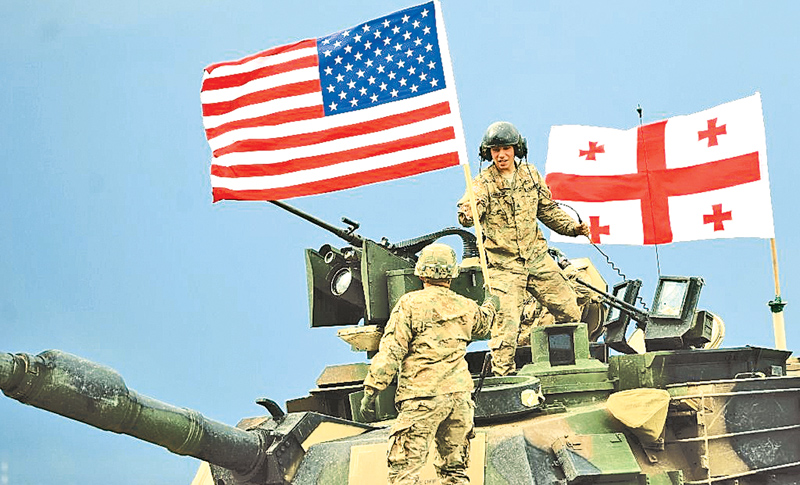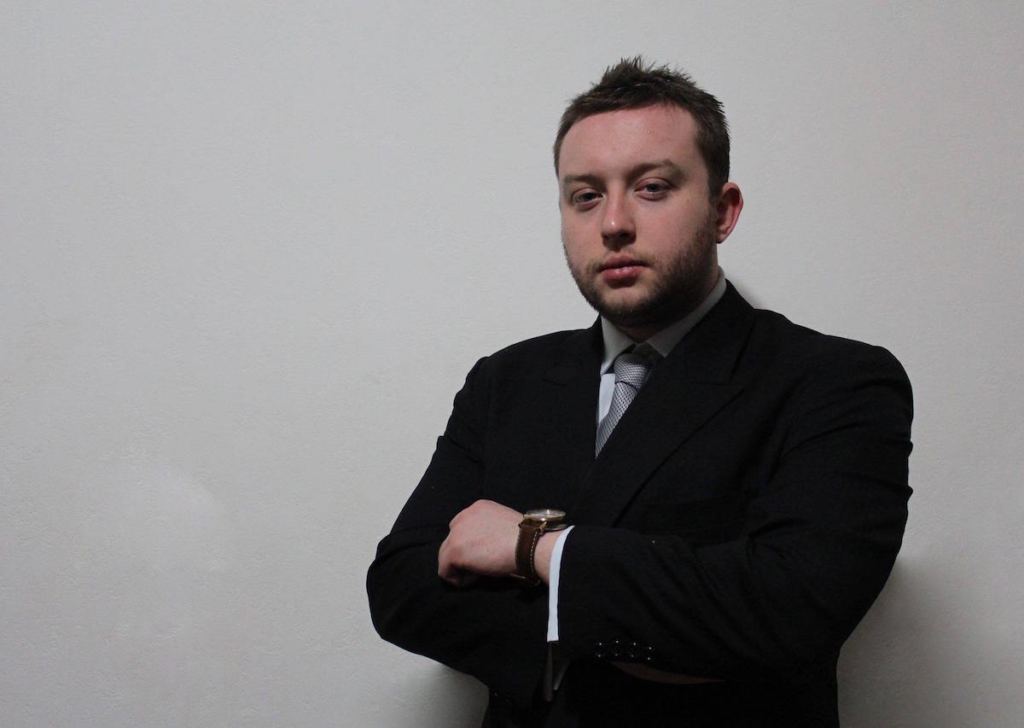Georgia in murky waters as Russia-America relations sour
Vladimir Putin carrying his buddy Donald Trump. Picture by DonkeyHotey, via Wikimedia Commons
As is typical for the reactionary and impulsive President Donald Trump, this last week has seen a dramatic shift in US policy. Barely a week ago, the cosy relations between the White House and the Kremlin were cause for significant concern for Western Europe and (in particular) EU members or aspirants who were once members of the Communist bloc.
For European countries, Trump’s campaign rhetoric of NATO being obsolete and threats to withdraw the United States from the alliance heralded the end of a status quo that had existed since the end of the Second World War; for those further east, the fear was that the President’s determination to cooperate with Moscow over fighting Islamic terrorism might come at the price of America turning a blind eye to Russian military indiscretions in former Soviet-dominated territories.
Now, however, contrary to all predictions and expectations, in the space of just several days relations between the United States and the Russian Federation have plummeted to a level far lower than at any time under the Democrats.
Trump’s direct attack of a Russian ally is a far cry from the typical Western reaction to Russian aggression in the from of ‘strong condemnation’; even the tangible response in the form of sanctions only bolstered President Putin and consolidated his domestic support.
Exactly what the attack was meant to achieve is still subject to debate, the only point of agreement seemingly being that the missile strike did little actual damage; Syrian military aircraft were able to take off from the targeted airfield’s runways just hours later.
It is entirely possible that the widespread coverage of Syria’s use of chemical weapons – and its prevalence on social media – prompted the President to act in a way which he believed might win him some much-needed support from the American public; after all, this is hardly the first atrocity carried out by the Syrian government, but it is arguably the first which has garnered so much attention from the Western public.
Previous acts of heinous violence in the Syrian Civil War given coverage by the Western media (and which have even managed to make apolitical social media users take notice) have chiefly been carried out by the Islamic State.
Russia, naturally, denies Syrian responsibility for the chemical attack, and perhaps it was hoped by the Kremlin that the blatant lies used during the Democrat era would work once again with the new American administration; indeed, it does not seem particularly far-fetched that Moscow might have thought that unlike President Obama, who swallowed Putin’s denials for the sake of international stability, Trump would advocate the Russian-approved version of events.
Trump’s reactionary attack undoubtedly came as a shock, even if Moscow was given advance warning of the strike (which allowed the Syrians to safely secure most of their aircraft and personnel before the missiles fell).
It would have taken a statesman of greater experience and talent than President Trump to use al-Assad’s chemical attack against the Russians, and strong-arm them into cooperation under American direction; likewise, it will take a statesman of greater experience and talent to extricate America from a souring of relations with Putin’s Russia.
Turkish President Erdogan managed to repair the damage done by the downing of a Russian aircraft and the death of its pilot over contested airspace, but Putin has need of Turkey; its increasingly anti-Western stance renders it a powerful and useful ally.
The Kremlin has no use, however, for a combative America, but perhaps Trump’s action – which was as aggressive (but not quite so well thought-out) as something that Putin himself might do – has given the Russian President pause.
Whatever else might be said of President Putin, he is no madman given to lashing out impulsively, and might treat his unstable ally-turned-rival gingerly in the future, unless he remains true to form and ups the ante.
Trump’s U-turn on policy extends to Eastern Europe, with the President retracting his campaign pledge to recognise the Crimean peninsula as part of the Russian Federation and now claiming that it should be returned to Ukraine. An aggressive, anti-Russian Republican administration would certainly assist Kiev with its little-reported war in the east, but the risk of a general escalation of hostilities would rise rapidly.
For its part, Georgia needs to tread very carefully. It would certainly be possible to take advantage of the Trump administration’s new-found enmity for Russia and attract further aid from the United States, and perhaps even invite the President to establish permanent military bases in the country as America has done elsewhere.

US troops take part in a NATO military exercise outside Tbilisi, Georgia. Photo by Daily News
However, American military aid was one of the catalysts of the 2008 war, and with Moscow becoming increasingly savage, Putin might begin to brood on the fact that Georgia is the only obstacle for a land-link between Russian-controlled territory and its allies in Armenia and Iran.
Georgia, logically enough, looks to Europe as its future and chief partner, even if Brussels has been less forthcoming in rendered aid than Washington in the past. Yet Trump’s nationalist tendencies are at odds with European liberalism, and perhaps the EU might have further reservations about Georgia if Tbilisi is seen to be fostering too close a relationship with the White House; for Brussels, Donald Trump is the manifestation of the EU’s worst nightmare, an American Geert Wilders mixed with Marine Le Penne, a leviathan of nationalism, populism, Islamophobia and every other ideology that Europhiles believe is tearing the continent apart; in this way, a Trump-friendly Georgia might well incur the ire of Brussels.
Prime Minister Kvirikashvili might well be tempted to take advantage of the plummeting relationship between Moscow and Washington, or adopt a more European line of reserved cooperation.
It is, of course, a shame that Georgia lives on the whim of Western politicians who seem to have no notion of balance.
Reactionary missile strikes in the style of President Trump will only make bad worse, yet the head-in-the-sand approach of Europe towards Russia and its bleating that everything is the political right’s fault do not answer either.
Whatever the Georgian government does, it must be careful; its international presence is arguably of greater importance than ever before.

Tim Ogden is a British journalist currently based in Tbilisi



















